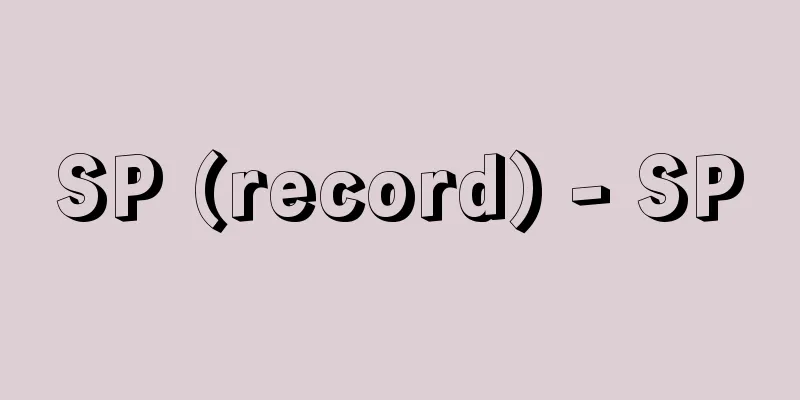Neruda - Pablo Neruda

|
Chilean poet. His real name was Ricardo Neftari Reyes Basoalto. He adopted the pen name, which he took from Paul Verlaine and Czech writer Jan Neruda, as his real name in 1946. He was born in Parrar in the center of Chile to a father who was a railroad worker and a mother who was a teacher, and after his mother's death, he moved to Temuco in the south. The rugged and fascinating nature of the frontier became the source of his poetry. In 1921, he entered the University of Santiago with the aim of becoming a French teacher. His first collection of poems, "Festival Songs" (1921), which won the Student Union's competition, and "Twilight Songs" (1923), are strongly influenced by modernism. However, Twenty Love Poems and a Song of Despair (1924), which had a tendency towards neo-romanticism that emerged as a reaction against pure poetry at the time, went beyond modernism with its bold expression of comparing the female body to "nature," and resonated among young people, and it still has many readers today. In "The Attempts of the Infinite Man" (1925-1926) and "The Earthly Dwelling I and II" (1931-1935), which were mainly written during his travels as a diplomat to Southeast Asia, Argentina, and Spain, he approached surrealism and expressionism. In the latter, he portrayed a collapsing world, ruins, and the poet deeply immersed in the chaos of pessimism and suffering. While associating with the "Generation of '27" in Spain, he founded the poetry magazine "Green Horse for Poetry," in which he attacked pure poetry and advocated "impure poetry." The civil war he encountered prompted him to face reality head on and to aspire to human solidarity. "Spain in My Heart" (1937), included in "The Third Home" (1947), is a collection of poems that shows his transformation as a social poet. He later joined the Communist Party and became a senator. He wrote the epic poem "The Great Song" (1950), which sang of love for the Americas and humanity. The masterpiece "The Summit of Machu Picchu" is included in this work. After "Elementary Odes," which dealt with a simple and rustic world, he wrote "One Hundred Sonnets of Love" (1959), which was full of optimism, and continued to write in a variety of formats on themes such as the nature and mysteries of his native Chile, autobiography, and politics. After the Allende government was established (1970), he served as ambassador to France. He was awarded the Stalin Peace Prize in 1950 and the Nobel Prize in Literature in 1971, but died of illness in 1973 during the coup d'état. [Noya Fumiaki] "Neruda Memoirs: Confessions of My Life," translated by Motokawa Seiji (1976, Mikasa Shobo)" ▽ "Neruda Poems," edited and translated by Hadeniwa Fukuro (included in World Contemporary Poetry III, 1964, Iizuka Shoten)" ▽ "Neruda Poems," edited and translated by Oshima Hiromitsu (included in World Poetry 20, 1971, Kadokawa Shoten)" ▽ "Pablo Neruda Heinrich Böll," translated by Arai Masamichi et al. (included in Nobel Prize Literature Collection 25, 1973, Shufu no Tomosha)" [References] |Source: Shogakukan Encyclopedia Nipponica About Encyclopedia Nipponica Information | Legend |
|
チリの詩人。本名はRicardo Neftari Reyes Basoalto。ポール・ベルレーヌとチェコの作家ヤン・ネルダからとった筆名を、1946年に本名とする。中部のパラールで鉄道員の父親と教員の母親の間に生まれ、母親の死後、南部のテムコに移住。辺境の荒々しく魅惑的な自然は彼の詩作の源泉となった。1921年、フランス語教師を目ざし、サンティアゴの大学に入学。学生連盟主催のコンクール優勝作『祭りの歌』(1921)や処女詩集『たそがれの歌』(1923)は、近代派の影が色濃い。しかし、当時、純粋詩への反動として現れた新ロマン主義の傾向をもつ『二十の愛の詩と一つの絶望の歌』(1924)は、女性の肉体を「自然」に例えた大胆な表現により、近代主義を超え、青年たちの間に反響をよぶとともに、今日も多くの読者をもっている。『無限の人間の試み』(1925~1926)や、外交官として東南アジア、アルゼンチン、スペインを巡るなかでおもに書かれた『地上の住処(すみか)Ⅰ・Ⅱ』(1931~1935)では、シュルレアリスムおよび表現主義に近づいている。後者に現れるのは崩壊する世界、廃墟(はいきょ)であり、ペシミズムと苦悩の混沌(こんとん)のなかに深く身を沈める詩人の姿である。スペインで「27年世代」と交遊しつつ、詩誌『詩のための緑の馬』を主宰、そのなかで純粋詩を攻撃し、「不純粋詩」を唱えた。遭遇した内戦を機に、現実直視、人類連帯を志向する姿勢が現れる。『第三の住処』(1947)に含まれる『心の中のスペイン』(1937)は社会派詩人としての変化を示す詩集である。 その後、共産党に入党するとともに、上院議員にもなり、アメリカ大陸や人類に対する愛を歌った叙事詩、『大いなる歌』(1950)を書く。傑作『マチュピチュの頂(いただき)』はそのなかに含まれている。続く単純素朴な世界を扱った『基本的なオード』を経て、オプティミズムに満ちた『百の愛のソネット』(1959)や、祖国チリの自然とその神秘や、自伝、政治などのテーマを多様な形式で書き続けた。アジェンデ政権成立(1970)後はフランス大使をも務めた。1950年スターリン平和賞、1971年にノーベル文学賞を受賞したが、1973年、クーデターの最中に病没した。 [野谷文昭] 『本川誠二訳『ネルーダ回想録――わが生涯の告白』(1976・三笠書房)』▽『羽出庭梟編・訳『ネルーダ詩集』(『世界現代詩集Ⅲ』所収・1964・飯塚書店)』▽『大島博光編・訳『ネルーダ詩集』(『世界の詩集20』所収・1971・角川書店)』▽『荒井正道他訳『パブロ・ネルーダ ハインリッヒ・ベル』(『ノーベル賞文学全集25』所収・1973・主婦の友社)』 [参照項目] |出典 小学館 日本大百科全書(ニッポニカ)日本大百科全書(ニッポニカ)について 情報 | 凡例 |
<<: Nerchinsk (English spelling)
Recommend
Charity work - Charity work
It refers to organized activities based on the id...
Hassler, Hans Leo
Born: October 26, 1564, Nuremberg Died June 8, 161...
IPU - Internet Proof of Concept
Inter-Parliamentary Union Source: About Shogakukan...
Orthotomus sutorius (English spelling) Orthotomussutorius
…[Higuchi Hiroyoshi]. … *Some of the terminology ...
Weltbuhne - Weltbuhne
…Born into a Jewish merchant family in Berlin, he...
Safety Standards - Safety Standards
...An agreement that specifies terms, symbols, de...
《Memorial Days》
...This ambitious work attempts to put into words...
thon mi sam bhoṭa (English spelling) thonmisambhota
...In Tibetan, it is called bod yig (hereinafter,...
Obinnik - Obinnik
...When moving into a new house, it was necessary...
Leave of absence - Kyuushoku
A public servant is not temporarily suspended from...
kūfiya (English spelling)
…Inside the tent, a curtain separates the family ...
Hanmotsu - Hanmotsu
〘Noun〙① During the Muromachi and Sengoku periods, ...
Ribwort (English spelling)
...In Europe and the US, the seeds of the same ge...
Paraná (State of Paraná)
A state in southern Brazil. Area: 199,544 km2, pop...
Hydrocotyle ramiflora (English spelling) Hydrocotyleramiflora
…[Murata Gen]. … *Some of the terminology that me...









